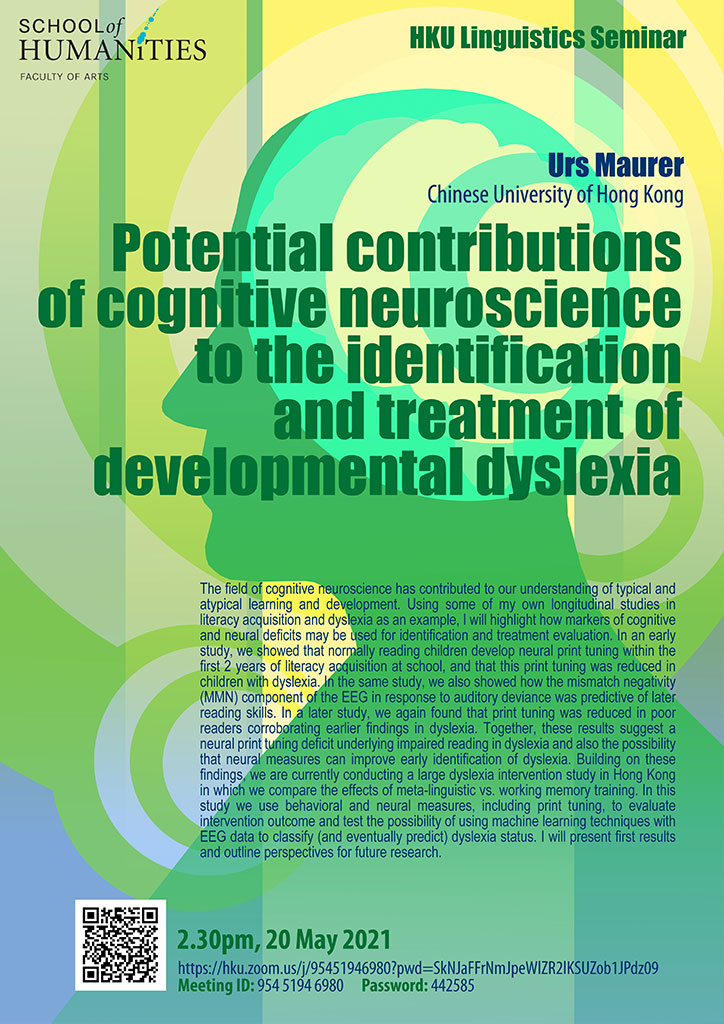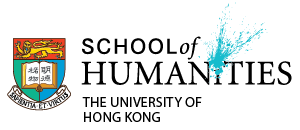
Department of Linguistics
HKU Linguistics Seminar
Potential contributions of cognitive neuroscience to the identification and treatment of developmental dyslexia
Urs Maurer
Chinese University of Hong Kong
The field of cognitive neuroscience has contributed to our understanding of typical and atypical learning and development. Using some of my own longitudinal studies in literacy acquisition and dyslexia as an example, I will highlight how markers of cognitive and neural deficits may be used for identification and treatment evaluation. In an early study, we showed that normally reading children develop neural print tuning within the first 2 years of literacy acquisition at school, and that this print tuning was reduced in children with dyslexia. In the same study, we also showed how the mismatch negativity (MMN) component of the EEG in response to auditory deviance was predictive of later reading skills. In a later study, we again found that print tuning was reduced in poor readers corroborating earlier findings in dyslexia. Together, these results suggest a neural print tuning deficit underlying impaired reading in dyslexia and also the possibility that neural measures can improve early identification of dyslexia. Building on these findings, we are currently conducting a large dyslexia intervention study in Hong Kong in which we compare the effects of meta-linguistic vs. working memory training. In this study we use behavioral and neural measures, including print tuning, to evaluate intervention outcome and test the possibility of using machine learning techniques with EEG data to classify (and eventually predict) dyslexia status. I will present first results and outline perspectives for future research.
2.30pm, 20 May 2021
Meeting ID: 954 5194 6980
Password: 442585
